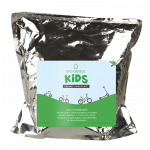Failure to thrive is a term your doctor will use if your child isn’t in the weight, height, or head circumference scale that is appropriate for their age. Usually the child has to be below the third percentile on the scale. Failure to thrive is usually diagnosed in infants but it can happen at any age. It can have long term effects though if you don’t get it treated.Â
Causes
The main cause of failure to thrive is malnourishment. Malnourishment can be caused by a different number of things. Factitious food intolerances that the parents think the child has but really doesn’t which causes them to restrict their diet so severely that the child isn’t getting enough to eat. Other causes could be poor feeding, not getting enough nourishment from breastfeeding, or poor latch. Neglect, physical abuse, mental trauma, depression, or even poverty can cause a child to suffer from failure to thrive.Â
Premie babies are at a higher risk since their birth weight is already so low. Babies with down syndrome, cerebral palsy, heart disease, infections, milk allergy, cystic fibrosis, celiac disease or acid reflux can all be at a higher risk as well. Â
Diagnosis
Usually failure to thrive is diagnosed at a routine doctor’s visit. When the doctor will measure and weigh your child to see if they are growing at the right rate for their age. If the doctor suspects that there is trouble within the home that is causing the child to struggle they may want to have the parents seek counseling. If your doctor feels like there is an underlying allergy they may want to draw blood to rule out any kind of allergy or disease that causes your child not to absorb nutrients.Â
 Read More: 8 Most Common Food Allergies
Symptoms
Besides dropping below the third percentile on the age scale your failure to thrive may experience some other symptoms. Lack of weight gain is normally the first symptom that is caught. This can be either dropping in weight, or not gaining weight in between doctors visits.Â
It can also cause delays in development, such as rolling, crawling, talking, or walking. Learning disabilities and delayed motor development can also be symptoms. Lack of emotions such as smiling, laughing or not making eye contact. Your child could also experience fatigue, and irritability. If failure to thrive happens during the teen years it can delay puberty. Â
Treatment
After being diagnosed with failure to thrive most of the time treatment can be handled at home. The main course of treatment depends on the severity of the case, the family environment, and the overall health of the child. If your doctor expects there to be family trouble playing a factor in this diagnosis, they may hospitalize the child to be monitored twenty four hours a day, by nurses and hospital staff to get the baby fed and make sure weight gain starts. This can just be for a couple of days, or it could be a few weeks or even longer in extreme cases.Â
Your doctor may also want families to go through counseling to see if they need extra support through this diagnosis or to see if there is instability in the home that is causing neglect. If the situation is very severe child protective services, or social services may have to get involved.Â
The main treatment is to make sure your child is getting the appropriate nutrition. Every bite of food that your child gets should be high calorie, high fat. This can be adding extra fats to solid foods if your child is old enough for that. Examples would be adding flaxseed oil, vegetable oil, coconut oil into every baby food you feed your child. Try foods such as potatoes, avocados, spinach, or green beans to help boost their caloric intake.Â
There are high calorie formulas on the market, if breastfeeding is no longer an option. If diagnosed with failure to thrive your doctor may want you to work with a team of specialists. These specialists could be a dietician, physical therapist, speech therapist, or occupational therapist.Â
Outcomes
As long as failure to thrive is treated immediately, and quick results start to happen with weight gain babies that get diagnosed with this will grow and catch up to the other milestones.Â
Weight gain can take some time. It may take longer than you think, as long as positive weight gain continues you are on the right track. If you change your child’s diet and no weight gain continues you will need to reach out to your doctor to see if they need tube feedings, or another source of getting nutrients. This can also be a time to get some extra tests done if you feel there are allergies, intolerances, or a disease that would cause your child to be unable to absorb nutrients.
If you leave this untreated it can cause learning disabilities, emotional problems, and restricted growth.
In Conclusion
Your doctor will tell you how to change your child’s diet to best help them. Do not add in nutritional substitutes without consulting with your doctor first. Failure to thrive is seen in about 5-10% of all children seen in a primary care setting. Be consistent with a high fat, high calorie diet with your failure to thrive baby, weight gain takes time. Getting them back on the scale for their age can take some time, don’t be discouraged.Â
If you need additional help or cannot give your child the care they need let someone know so they can help you. Â
Appropriate Nutrition Combats Failure To Thrive! Learn more here. #HealthStatus
Babies with down syndrome, cerebral palsy, heart disease, infections, milk allergy, cystic fibrosis, celiac disease or acid reflux are at a higher risk for failure to thrive.
Sources:
https://www.hopkinsmedicine.org/health/conditions-and-diseases/failure-to-thrive
https://www.healthline.com/symptom/failure-to-thrive#outlook
https://medlineplus.gov/ency/article/000991.htm
https://kidshealth.org/en/parents/failure-thrive.html









Reply